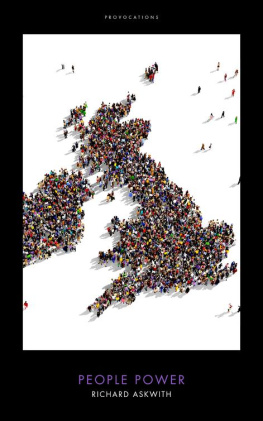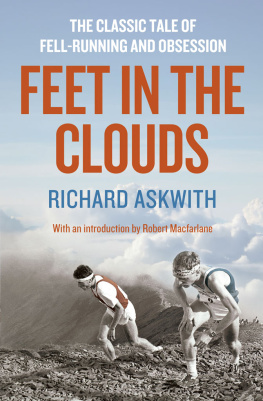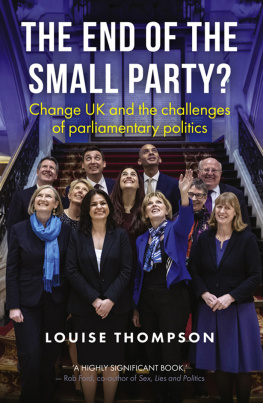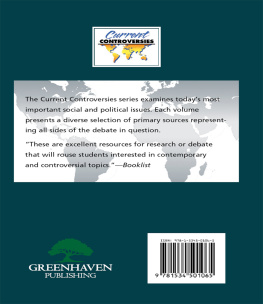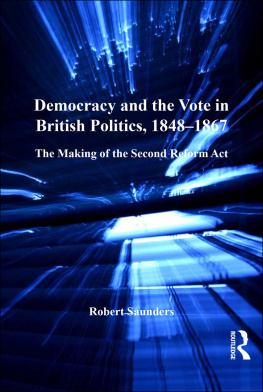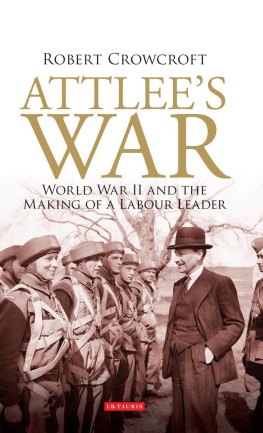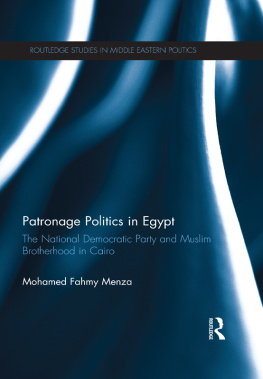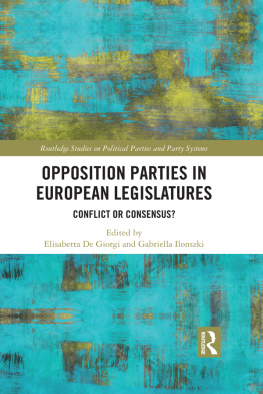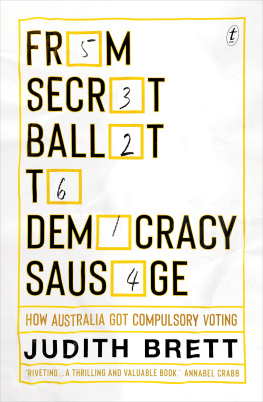Y OU SENSE THE decay before you enter. Patches of pale tarpaulin flap from the roof. The stained limestone walls are exhausted: eaten away by traffic fumes and time. The big black anti-terror bulks are the last truly solid thing you see.
Inside, it overpowers you. Damp clings to the ceiling at the north end of Westminster Hall. Parts of St Stephens Hall appear to have come away in visitors hands. Those are just first impressions.
The further you wander, the more decrepit the Palace of Westminster seems, from the stained carpet leading up to the Commons public gallery to the attendants threadbare fancy dress. Traces of Blitz damage remain at the entrance to the Commons chamber, seventy-seven years on. Even the MPs look worn out, going through the motions of ill-attended debates as listlessly as zoo animals. It is hard to believe that these pasty, fretful, well-tailored creatures, weighed down with tradition and responsibility, belong to the same species as the multi-coloured, trainer-shod, head-phoned, restlessly modern crowds outside.
Beyond public view, its worse. MPs offices are shabby and badly ventilated; the toilets are a running joke. But the real decay lies deeper still, among hundreds of miles of tangled cables and dodgy pipes. It lies in the dank, rodent-friendly basements, or up among the rusting gutters, crumbling gargoyles and leaking windows; and, not least, in the deadly asbestos that lurks unseen in ducts and floors. If it werent for the discreet, round-the-clock fire patrols, it wouldnt even be legal for use.
If it once occurs to you to think of the Houses of Parliament as a catastrophically over-ripe Stilton, its hard to dispel the image. Decomposition has seeped into everything. One strong blast of wind, you feel, could reduce the whole thing to a puff of noxious dust.
In fact, the Palace could once again be made fit for purpose. The cost of doing so has been estimated at up to 6 billion, although that might be almost halved if MPs agreed to move out completely for six years. As I write, they have yet to decide although by the time you read this they may finally have done so. So far, however, they have shown a marked reluctance to leave.
Perhaps they are attached to the symbolism.
T HE METAPHOR BARELY needs spelling out. British parliamentary democracy is itself in a state of malodorous and increasingly alarming over-ripeness. The stench that makes headlines comes from sexual and financial abuses, all the more pungent for having festered for years in shadows. The long-term hazard is a political decay whose symptoms include: party machines with no goal beyond their own survival; donors and lobbyists whose interests trump the nations; a disillusioned electorate; and an over-mighty executive (rarely elected by more than a third of eligible voters) whose patronage has become the main driving force of parliamentary politics. These rots have mixed to breed a caste of career politician, more concerned with serving patrons than constituents and, as a result, increasingly incapable of even feigning sincerity when interacting with the public. There are decent MPs too: selfless public servants who deserve our gratitude. But decay dominates. Government and opposition alike keep their principles close to their chests, and all but their hard-core party loyalists mistrust them for it.
Weve known all this for years. Weve known, too, with the apathy of adulthood, that theres nothing we can do about it beyond refusing to vote. Yet in that, at least, we were wrong.
In the past decade, a new generations digital revolution has gradually given a voice to the hitherto unheard masses. In far-flung tyrannies, old and young have used new technologies to clamour for freedom, with humbling courage and terrifying consequences. In the elderly democracies of the West, empowerment by social media has taken a subtler form. Its long-term effects may be no less far-reaching. Seizing on communication channels that their supposed elders and betters still struggle to master, the nobodies who make up most of any Western electorate have gate-crashed their nations big discussions. Their contribution to political discourse, once limited to the occasional X on a ballot paper, has been rude, vigorous, anarchic and, recently, spectacularly influential.
We had a taste of it in 2014, when a fire-storm of social media nationalism blew the Scottish independence referendum out of the parliamentary Establishments control. By the eve of the vote, shell-shocked leaders of the main parties were reduced to standing shoulder to sagging shoulder, desperately promising the unruly populace whatever it wanted.
That tide turned. Those that followed were not for turning. Their effects included: the slump in support for the big parties in the 2015 general election; the rejection of mainstream candidates in subsequent Labour leadership contests; the roar of pent-up rage against the Brussels-friendly elite that led to the Brexit vote of June 2016; and, not least, the seemingly crazed elevation of Donald Trump braggart, groper, buffoon, barefaced liar and serial screwer of the little people to become, seven months later, the most powerful man in the world.
By the time Jeremy Corbyns radically populist version of the Labour Party had surged to an unexpectedly respectable 55-seat defeat in the 2017 general election, we had begun to expect electoral cataclysms. (I can easily imagine Corbyn, Leader of the Opposition as I write this, being Prime Minister by the time you read it.) For many of us, though, those first great batterings of the status quo were particularly shocking and bewildering. The world seemed to be changing too quickly for the eye to follow. We snatched at explanations, barely pausing to examine them. Discomfited commentators pointed to socio-economic causes to which we that is, they had paid insufficient attention. It became fashionable to talk of the left-behinds, or of a gulf between locally rooted somewheres and cosmopolitan anywheres. There was talk, too, of a new post-rationalism, an age of anger, even a post-literate age. And then there was the death of liberalism.
It was hard to quarrel with reports of the latter, which by late 2016 were appearing almost daily. The Liberal Democrats had been all but wiped out in the 2015 general election, although it felt at the time more like a judgement on the partys handling of power than a rejection of its unobjectionable core beliefs in freedom, fairness, internationalism and tolerance. Thirteen months later, liberal sympathisers were disproportionately represented among the defeated 48 per cent who voted Remain in the Brexit referendum.
In between, for some of us, there was another landmark. In March 2016, the last print edition was published of The Independent my employer, on and off, for twenty years, but also a major media voice for Britains free-thinking liberal centre. There were obvious reasons, not least a wider meltdown of the newspaper industry. No one suggested at the time that the values the paper had tried to stand for were a factor in its demise. How could they have been? No thinking person could object could they? to such uncontroversial journalistic ideals as impartiality, intellectual rigour and freedom from proprietorial interference; or to such political ones as a commitment to democratic liberties, concern for the future of the planet and a broad, humane belief that all lives matter.
But that was then. Much later, I sensed a link. In little more than a year, three pillars of my world had collapsed. Maybe it did mean something. My adult life including thirty-five years as a reasonably successful journalist had been lived in the context of a national near-consensus about values: the kind of unobjectionable and uncontroversial values listed above. What if a new political tide had swept that context away?

